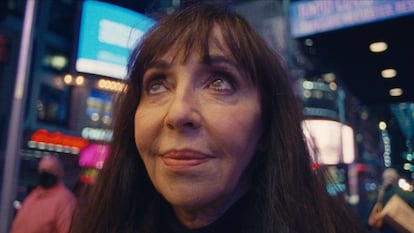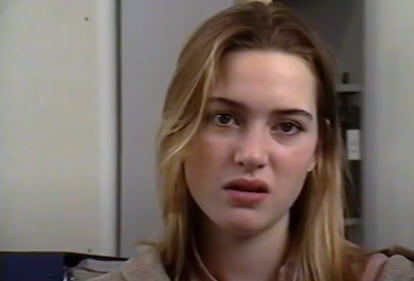The secret force behind Benicio del Toro, Natalie Portman, Steve Buscemi and half of Hollywood
A new documentary celebrates casting director Bonnie Timmermann, a legend who launched the careers of many of today’s best-known movie stars

He hadn’t printed the necessary documents. He brought only a handwritten sheet of paper. Nor did he provide standard headshots of himself: instead, he handed over tiny photos, as if he were applying for a passport. Two basic requirements, two basic failures to meet them. It’s fair to say the aspiring actor’s audition did not get off to an auspicious start. But Bonnie Timmermann always knew how to see beyond such things. Perhaps that kid with pitch-black hair and intense eyes was not the most organized interviewee she remembered, but he had something special. “Star quality,” the legendary casting director recalls in front of the camera. She was right, yet again, when she put him forward for the television show Miami Vice, and she was right in her belief that the young man would someday be a Hollywood star. Today, Benicio del Toro has an Academy Award, a Bafta and a Golden Globe. Aside from his obvious talent, he owes his success to Timmermann’s intuition, like so many other actors. As noted in the documentary Bonnie, screened at the recent Venice Film Festival: “Any actor whose name is remembered has gone through her.”
“I’m always drawn to a certain mystery in people. I like an invitation to imagine all kinds of improbabilities. I also believe it’s important for an actor to take the time to place the emotion of the moment into a broader understanding of the character,” Timmermann says via email about what she looks for in auditions. And she has been finding it for decades. Some of the most famous faces in Hollywood parade through the Simon Wallon film: Sigourney Weaver, Mark Ruffalo, Liam Neeson, Melissa Leo, Lawrence Fishburne, Bruce Willis, Kate Winslet and Natalie Portman. Many are thankful and their descriptions add to the portrait of one of the most important talent spotters in the industry. They pay tribute to a decisive but almost invisible figure: hidden behind the director and the actors, it is her task to bring them together. Incidentally, the film compiles the earliest auditions of many Hollywood celebrities, before fame, before stardom, when they were like every other aspiring actor: insecure nobodies on the lookout for an opportunity.
Timmermann helped them to make the breakthrough: “Sometimes even the best actor needs help auditioning. At first, I spend 20 minutes talking to them,” she says in the documentary. Steve Buscemi, for example, explains in the documentary that he was constantly rejected for being “too shy,” until he crossed paths with Timmermann. Giancarlo Esposito is moved by remembering the woman who launched his career. She also intuited the magic of Brian Cox just by watching him perform from the wings of a theater. She insisted on putting Russell Crowe forward for Michael Mann’s The Insider, one of his first leading roles, after simply seeing him smoking in a hotel bar. And she’s still proud to have pushed for Jennifer Grey to play Baby in Dirty Dancing. She sums up the characteristics of a good casting director: “Intuition and an openness, which allow a casting director to see the possibilities behind an awkward audition or to realize that an actor portraying a thoroughly convincing villain could also be an engaging lead in a romantic comedy.”
In the movie, her discoveries find more poetic ways to describe her. “It’s the gap between everything and nothing,” says Ruffalo. “It adds a dimension to the project that the writer didn’t even imagine,” adds del Toro. And that, at first, not even Timmermann fully understood. “My first casting work was for an independent theater company in New York. When I accepted the job, I didn’t know what a casting director did, but I was immediately smitten by actors and the theater. It’s gratifying now to be able to focus some attention on a career that has remained a labor of love. In movies and TV, so many people contribute to what is seen on the screen, and it’s time for casting directors to receive the credit they deserve,” she explains, citing other legends of her craft, from Marion Dougherty to Lynn Stalmaster, Mary Colquhoun and Shirley Rich.

The documentary recognizes even more of her merits. “She believes very strongly in the actors she casts,” says Mann. “She’s not the kind of person who says yes to everything,” adds filmmaker Derek Cianfrance. She also values a certain warrior spirit: “I insist until they agree with me or I give up.” She spent weeks interviewing people on various reservations in Canada and the US because she was determined to have real indigenous actors for The Last of the Mohicans. She repeated the process with natives of the Amazon for Medicine Man. And, in the face of general skepticism, she managed to get the musician Leonard Cohen to appear in Miami Vice. She did have a trick, though: “He was my ex-boyfriend. Of course, I got it.” After so many years, Timmermann also remembers a few defeats: towards the end of the 1990s, not even her insistence convinced the producers of a film to hire a boy who had fascinated her: his name was Edward Norton.
A good part of Timmermann’s stable are men: the documentary itself underlines this. She notes: “I’m sure I’ve cast more men than women. But that’s because most of the roles are written for them.” And it stands out that one of her first productions, the 1977 play Uncommon Women and Others, by Wendy Wasserstein featured Meryl Streep and Glenn Close, among others. Weaver emphasizes the casting director’s great ability to “deal with high-testosterone atmospheres.” To explain this, Timmermann returns to her father: “He was an immigrant, an amateur boxer and a demanding parent. I suspect that growing up in that house prepared me to work with directors like Mann and Ridley Scott. Although I must say that the auditions for Awakenings, by Penny Marshall, who I respect very much, were not a walk in the park.”

At the same time, her drive for the inclusion of minorities in her projects has always been recognized. Decades ago, it was said that Timmermann performed “voodoo,” according to the documentary. In Blackhat, by Mann, she had to look for a white Italian-American male actor for one of the main roles. She proposed Viola Davis, a black woman. In the end, she had her way - as usual.
Timmermann says that the MeToo movement has not changed her work much. She says that she has never heard of or suspected “any of that behavior” in the films she has cast. Stories about the so-called casting couch - a young actress in search of a role, exposed to harassment or abuse of power by the director who will decide her fate - have been rife from the early days of Hollywood. What she does see differently is the way she searches for hidden gems: “When I started, I was able to keep up with all the new talent by going out to the theater several times a week and seeing most of the relevant movies and TV. Now there is so much content that it is impossible to see every good performance. Newspaper reviews and word-of-mouth have become much more important.” Instinct, though, is still primary, and Timmermann’s rarely fails. Half of Hollywood is grateful for her Midas touch.
Tu suscripción se está usando en otro dispositivo
¿Quieres añadir otro usuario a tu suscripción?
Si continúas leyendo en este dispositivo, no se podrá leer en el otro.
FlechaTu suscripción se está usando en otro dispositivo y solo puedes acceder a EL PAÍS desde un dispositivo a la vez.
Si quieres compartir tu cuenta, cambia tu suscripción a la modalidad Premium, así podrás añadir otro usuario. Cada uno accederá con su propia cuenta de email, lo que os permitirá personalizar vuestra experiencia en EL PAÍS.
¿Tienes una suscripción de empresa? Accede aquí para contratar más cuentas.
En el caso de no saber quién está usando tu cuenta, te recomendamos cambiar tu contraseña aquí.
Si decides continuar compartiendo tu cuenta, este mensaje se mostrará en tu dispositivo y en el de la otra persona que está usando tu cuenta de forma indefinida, afectando a tu experiencia de lectura. Puedes consultar aquí los términos y condiciones de la suscripción digital.









































